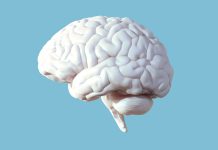Open Access Government produces compelling and informative news, publications, eBooks, and academic research articles for the public and private sector looking at health, diseases & conditions, workplace, research & innovation, digital transformation, government policy, environment, agriculture, energy, transport and more.
Home 2025
Archives
What makes GLP1 receptor agonist drugs so effective for obesity?
Michael W. Schwartz, MD, discusses the effectiveness of GLP1 receptor agonist drugs, such as semaglutide and tirzepatide, in treating obesity as well as the role of gut-brain signaling in maintaining energy homeostasis.
An unexpected role for the brain in blood glucose control and diabetes
Reactions were mixed some 14 years ago, when we and others first reported that in rodent models of type 1 diabetes (T1D), metabolic derangements resulting from severe insulin deficiency could be fully reversed by infusing the adipocyte (fat cell) hormone leptin directly into the brain.
Targeting the brain for the treatment of type 1 diabetes
Michael W. Schwartz, MD, explains the role played by the brain as a cause of elevated blood sugar and related metabolic derangements in type 1 diabetes, and how therapeutic targeting of this brain system can eliminate the need for insulin therapy in animal models.
The UW Medicine Diabetes Institute (UWMDI)
The UW Medicine Diabetes Institute (UWMDI) is the first of its kind in the Pacific Northwest, integrating state-of-the-art research programs with superb care for patients with diabetes, obesity and their complications.
The neuroscience of metabolism
Given that the brain can detect and respond to changing levels of body fat and blood sugar, Michael W. Schwartz, MD from the University of Washington Medicine Diabetes Institute, explains how the brain can be targeted to treat obesity and diabetes.






